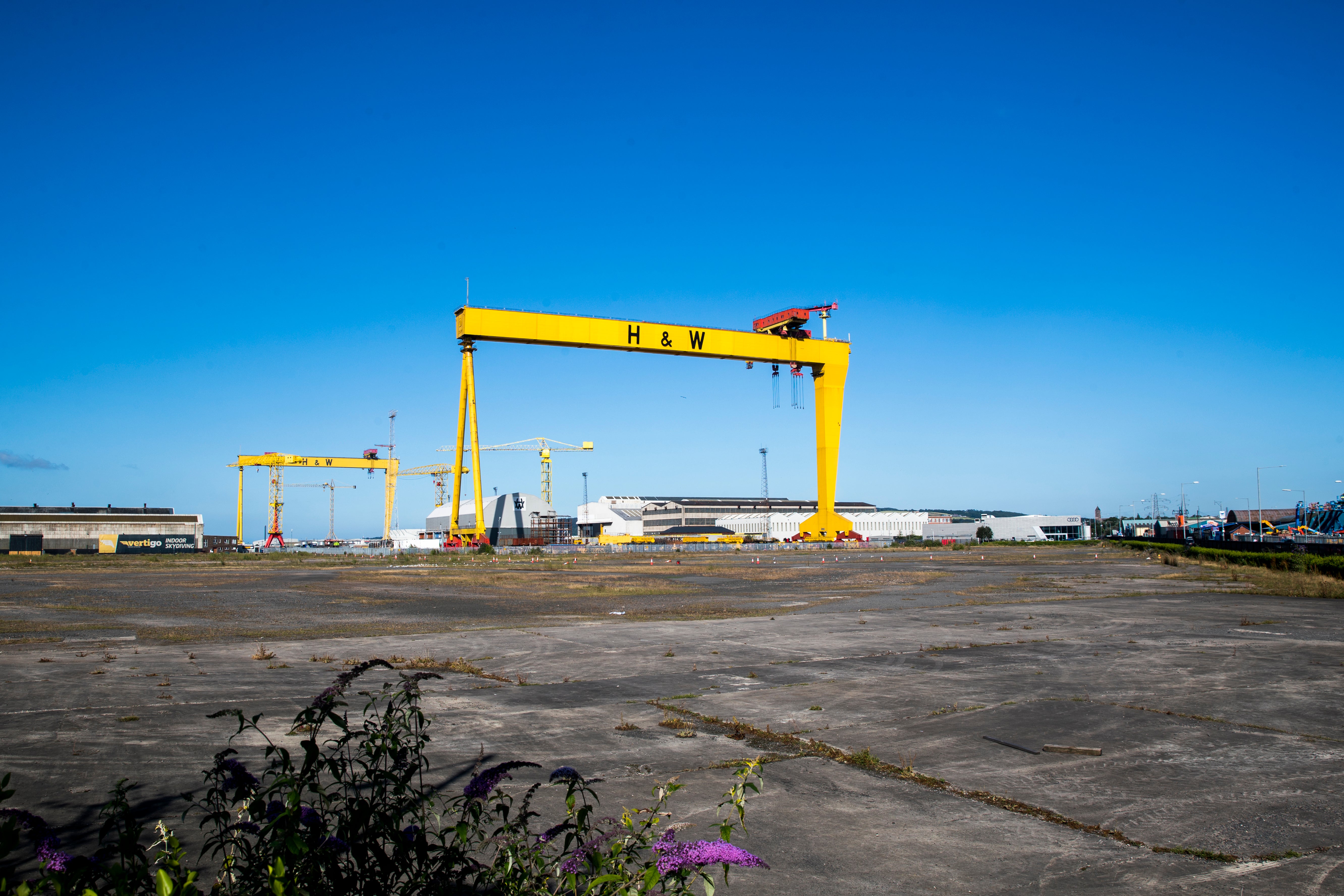£4bn shipbuilding pot ‘will deliver 150 new vessels in 30 years’
Ministry of Defence set to publish refreshed National Shipbuilding Strategy on Thursday.

Your support helps us to tell the story
From reproductive rights to climate change to Big Tech, The Independent is on the ground when the story is developing. Whether it's investigating the financials of Elon Musk's pro-Trump PAC or producing our latest documentary, 'The A Word', which shines a light on the American women fighting for reproductive rights, we know how important it is to parse out the facts from the messaging.
At such a critical moment in US history, we need reporters on the ground. Your donation allows us to keep sending journalists to speak to both sides of the story.
The Independent is trusted by Americans across the entire political spectrum. And unlike many other quality news outlets, we choose not to lock Americans out of our reporting and analysis with paywalls. We believe quality journalism should be available to everyone, paid for by those who can afford it.
Your support makes all the difference.A £4 billion injection into UK regional shipbuilding will create tens of thousands of jobs and deliver more than 150 new naval and civil vessels over the next 30 years, the Government has said.
The investment, to be announced by the Prime Minister during a visit to a Merseyside dockyard on Thursday, will “galvanise” shipyards and suppliers across the country, Downing Street said.
The £4 billion fund for the new vessels was announced in the 2020 Spending review and the 2021 Autumn Budget.
Meanwhile, the Ministry of Defence (MoD) is set to publish its refreshed National Shipbuilding Strategy (NSbS).
This will outline how the Government plans to support shipyards across the nation to upskill workers, create jobs, drive technology development, and ensure the industry “delivers on next-generation challenges”, Downing Street said.
It said the strategy will also build upon the nation’s “increased support for European defence capability in the face of rising Russian aggression”, with British defence giant Babcock chosen as Poland’s preferred partner to deliver three new warships based on the UK’s Type 31 design.
Mr Johnson said shipbuilding had been “in our blood for centuries”, and it should remain “at the heart of British industry of generations to come”.
“The National Shipbuilding Strategy will transform this important and crucial industry, creating jobs, driving technology development and upskilling the shipbuilders of tomorrow, ensuring we are levelling up across every dock, port and shipyard in the UK,” he said.
“This will ensure the UK is rightly seen as a shipbuilding power across the world.”
As part of the strategy, the Department for Transport will invest £206 million in the UK Shipping Office for Reducing Emissions (UK-Shore).
This will ensure the UK is rightly seen as a shipbuilding power across the world
This will be used to “match fund research and development in zero emission vessels and infrastructure and ensure our place as global leader in green technology”, No 10 said.
Defence Secretary Ben Wallace said: “As shipbuilding tsar, I am proud to be announcing our new strategy, this is an exciting time to be involved in the sector.
“With significant Government investment, we will be levelling up across our shipbuilding, workforce, from shipyard to supplier, from procurement to designer, creating tens of thousands of new employment opportunities, boosting living standards and pay.
“Our refreshed strategy will see the sector galvanised at a crucial time for our economy and see a vital part of British industry expand and flourish.”
But Chris Evans, Labour’s shadow defence procurement minister, said “ministers are failing to ensure ships are built in the UK and to secure local jobs”.
“One in five ships have disappeared from our surface fleet since 2010 and, while a 30-year pipeline for industry is welcome, this strategy does not address the MoD’s deep-seated issues which mean none of its major shipbuilding programmes are on time or on budget,” he said.
“With growing threats and Russian aggression, our steel industry and shipyards are essential to national security.
“Labour is committed to a ‘British built by default’ approach to defence procurement which would build resilience in our supply chains and protect our security.”
Sarah Kenny, chairwoman of Maritime UK, welcomed the refreshed strategy, saying shipbuilding communities can now “power the future prosperity of our island nation, as green engines for economic growth”.
“Whether it’s levelling up, by creating skilled jobs across our coastal communities; delivering net zero, by steering our ships in a green direction and exporting these technologies across the world; or promoting Global Britain, with 95% of all our trade moved by sea, maritime is central to our country’s future success,” she said.
“Our industry supports the National Shipbuilding Strategy, with its investment, broader focus on commercial and leisure vessels, and emphasis on enablers such as skills and collaboration.
Ministers are failing to ensure ships are built in the UK and to secure local jobs
“We will be working closely with Government to ensure these ambitions are met, on our way to becoming the world’s most competitive maritime nation by 2050.”
The UK’s shipbuilding industry currently supports 42,600 jobs across the UK, from Cornwall to Belfast and Govan, and contributes more than £2.8 billion to the economy, No 10 said.